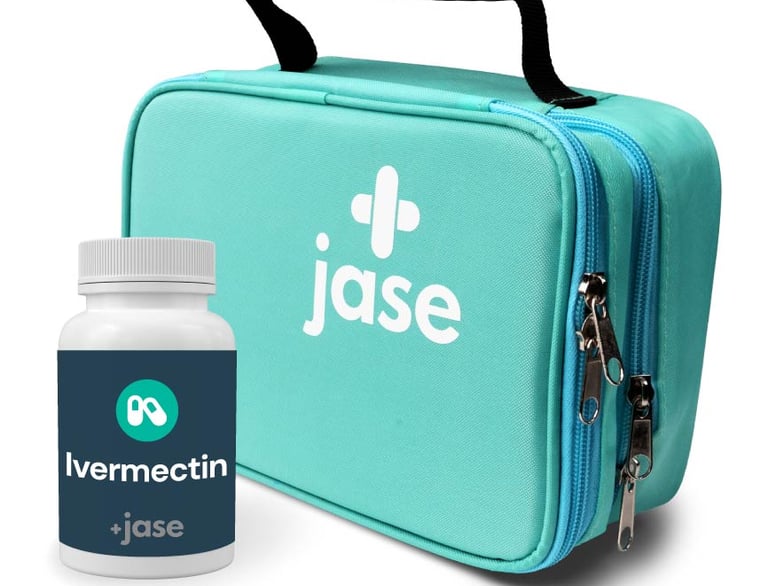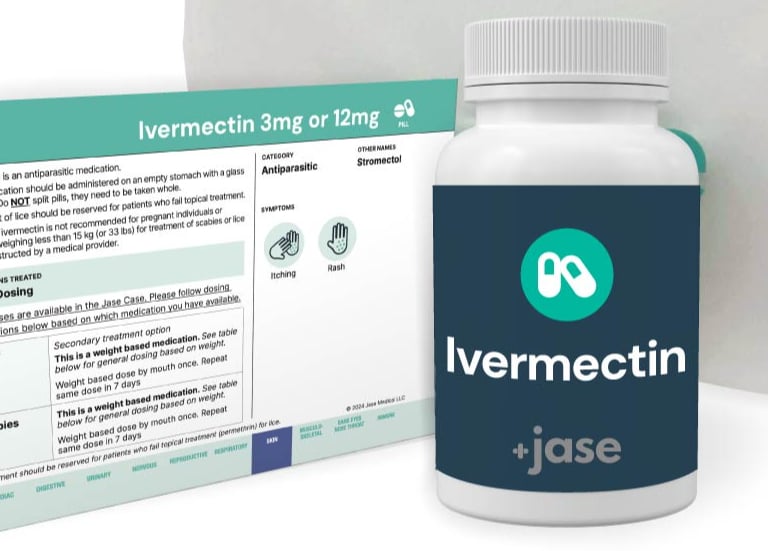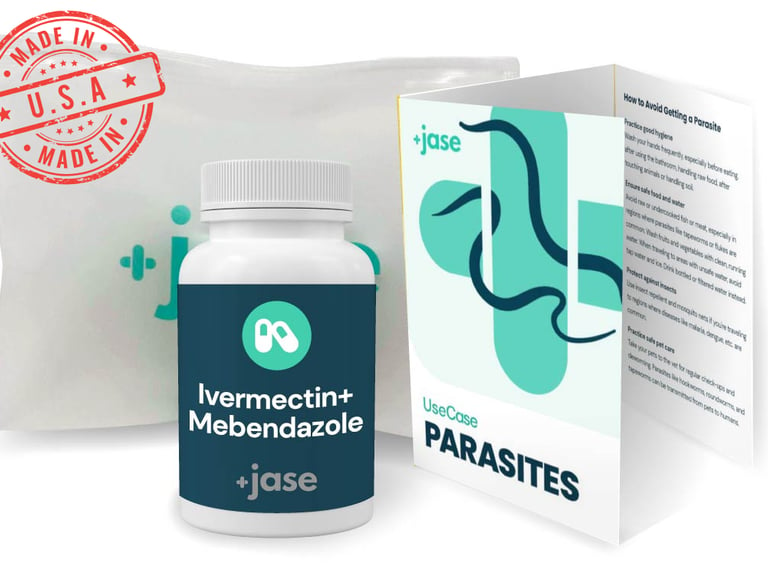uSE Code: Emergencykit for $10 off
Ivermectin-Mebendazole
Jase has compounded these two medications together into one pill to give you the combined effect to conveniently and effectively treat parasitic infections.
Jase Case Ivermectin Add On
Use Case Ivermectin
Ivermectin & Mebendazole
Between our recommended meds by activity, and our extensive list of add-on medications, your Case is the perfect fit for your situation. Your order is reviewed by world-class experts, so you can rest assured that it’s safe and accurate. Our amazing customer service team is here to help. From your initial online consultation until after you receive your medication, you’re in good hands.
Ivermectin + Mebendazole
Uses and Combination Therapy
Parasitic Infections: Both drugs are effective against a variety of parasitic worms. Mebendazole is commonly used for infections like pinworm, hookworm, and roundworm. Ivermectin is effective against different parasites, including those that cause river blindness (onchocerciasis) and strongyloidiasis.
Combination for Specific Infections: Studies have shown that combining these drugs, or a similar drug like albendazole with ivermectin, can be more effective than using a single drug for certain infections. For example, a combination of ivermectin and mebendazole has been shown to be more effective than either drug alone in treating Trichuris trichiura (whipworm) infections. This is because they have different mechanisms of action that can work together to target the parasite more effectively.
Anticancer Research (Repurposing): There is a growing area of research exploring the "repurposing" of these drugs for non-parasitic conditions, particularly cancer. Preclinical studies (in labs and animal models) have shown that both ivermectin and mebendazole may have anti-cancer properties, such as inhibiting cancer cell growth, triggering cell death, and disrupting tumor metabolism. However, this is an emerging field, and there is not enough clinical evidence to support their use as standard cancer treatments in humans. Using them for this purpose without a doctor's supervision could be dangerous and may delay proper, evidence-based care.
Side Effects and Drug Interactions
Side Effects: As with all medications, both ivermectin and mebendazole have potential side effects.
Ivermectin: Common side effects can include headache, muscle aches, dizziness, nausea, and diarrhea. More serious side effects can occur, and some are related to the death of parasites in the body, which can cause fever, itching, or rash.
Mebendazole: Common side effects include abdominal pain, diarrhea, nausea, and gas. In rare cases, more serious side effects can occur, such as a decrease in certain blood cells or liver problems.
Drug Interactions: Generally, no major drug interactions have been found between ivermectin and mebendazole. However, it's crucial to inform your doctor about all medications, supplements, and herbal products you are taking, as other drugs can interact with them. For instance, mebendazole should not be taken with metronidazole due to the risk of serious skin reactions.
Important Considerations
Medical Supervision: It is critical to take these medications only under the guidance of a qualified healthcare professional. They will determine the correct diagnosis, dosage, and duration of treatment.
Not a Cure-All: The use of these drugs, particularly in combination and for conditions like cancer, is not a validated or approved treatment in most cases. Self-medicating or using them for unapproved purposes can be harmful.
Prescription Only: Both ivermectin and mebendazole are prescription medications. They should not be obtained or used outside of a doctor's care.










